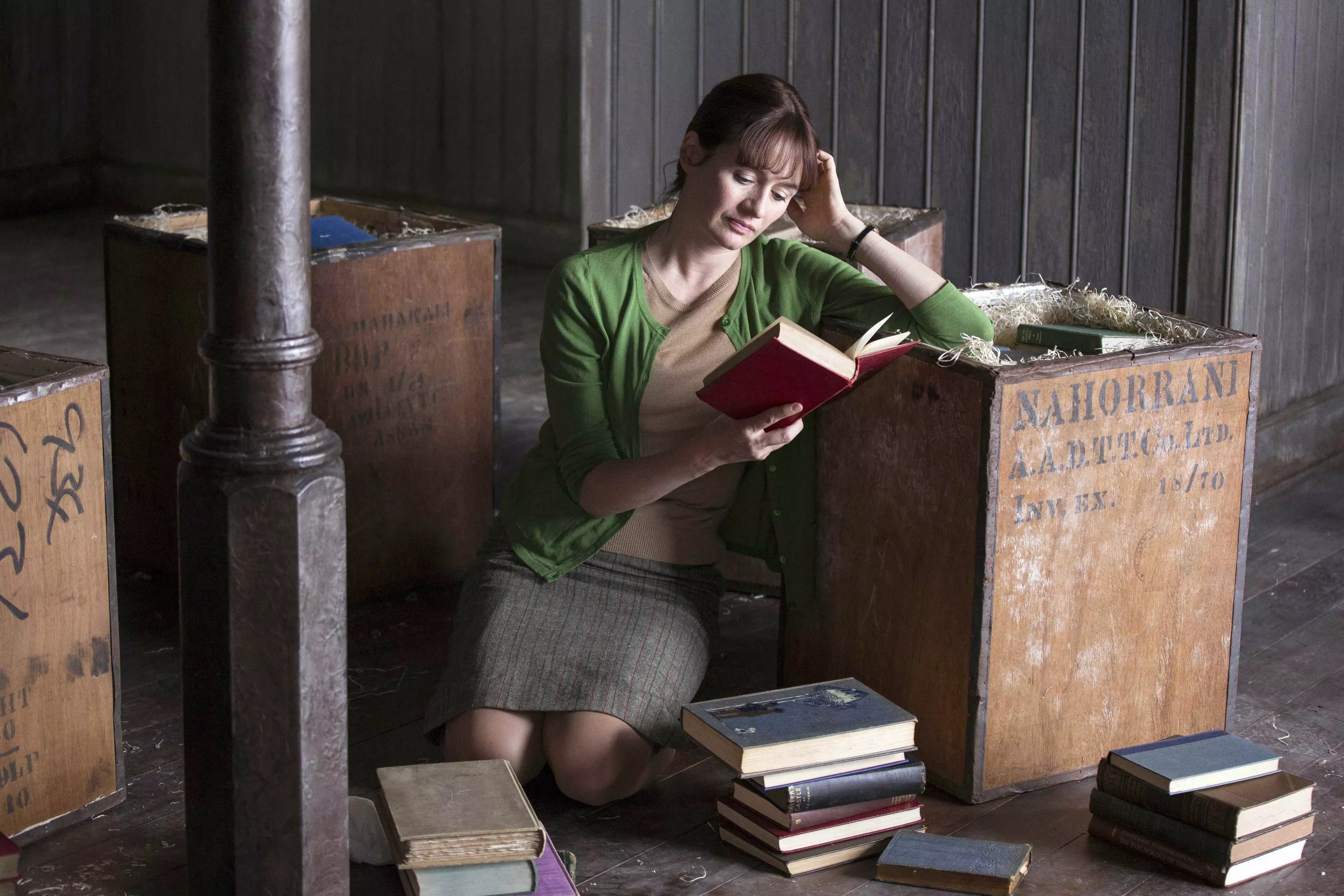
Courtesy of Greenwich Entertainment

Audio By Carbonatix
My deepest pleasure when watching The Great British Baking Show is trying to spot the nearly imperceptible sneer, or the eye roll tamed at the last second, or any case of contestants fighting to hide their actual emotions. To an American like me, the essence of Britishness isn’t what’s said but rather what’s not. Because of those unspoken, zipped-lip rules, some of the stories that float over from the UK seem almost incomprehensible to Americans. Watching, we have to wonder: Why don’t these people just fight it out and get on with it?
Writer-director Isabel Coixet’s period drama The Bookshop, for instance, is so bloody British that the story’s central concern is that an aristocratic heiress is quietly making it difficult for a young widow to run a bookshop in a small fishing town. This is a story of stifling manners and oppressive codes of conduct, where the wealthy “villains” wear a strained smile and an icky sheen of privilege. Social mores dictate that all others must simply fall in line. Though nearly nothing happens in this movie besides a woman opening a shop and beginning a standoffish friendship with a reclusive man, I still found myself drawn in, just as I was drawn to Iain’s discreet disaster of a baked Alaska (please check it out if you haven’t seen this TGBBS episode); sometimes the quiet is enticing.
Emily Mortimer plays Florence Green, whose dream is to honor her dead husband with a bookshop that would memorialize the importance of reading in their relationship. But most people in her rural town aren’t readers. The local heiress, Violet Gamart (Patricia Clarkson), would rather the location Florence has selected become a small arts center. Honestly, Violet could choose a number of vacant storefronts, but because she’s rich, it seems, she essentially wants what she can’t have and orchestrates little inconveniences designed to push Florence elsewhere – as politely as possible. So politely, in fact, that I often forgot that was the actual plot line, until it snuck up on occasion.
This is the kind of film where a character (Florence) worries endlessly over the color of her dress and what that color conveys to the people who see it. Seriously, Florence is fitted for a red garment in the first act, and she’s still debating it with herself well into the third. It is as though anxiety is the oxygen these people breathe, and without it and their little tiffs and fantasy dramas, they would suffocate in boredom. There are some red herrings of conflict, like when Florence contemplates whether Lolita would be appropriate to display in the shop, which suggests the possibility of seeing a town uprising against a sensationalist piece of literature, i.e. some action. But everything resolves itself quite easily.
In American films, if a protagonist is racked with grief and financial pressures, they’re often depicted thrashing in a violent rage, desperate to feel something. Think Manchester by the Sea, and its protagonist’s penchant for picking bar fights. Neither the British nor American cinematic way is necessarily superior to the other, but it’s sometimes nice to be reminded of violence of the papercut variety, that some troubles can be worked through without an ass-kicking.